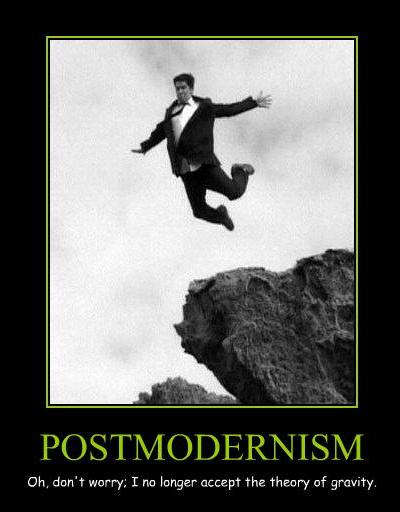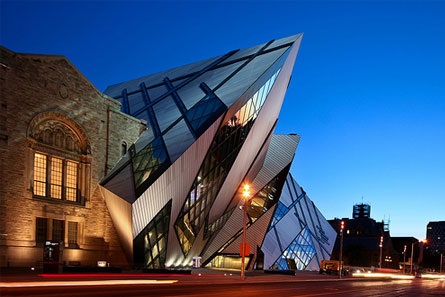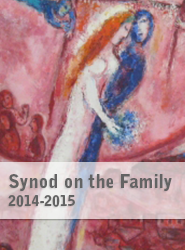
Numerous Popes have affirmed that the true Catholic is naturally a Traditionalist. The Greek origins of the word 'catechesis' express the fact that the authentic teacher of the Faith is the one who faithfully 'echoes' what he has first received from Christ through the Church. Even Jesus Himself proclaimed: 'My teaching is not my own, but His Who sent me' (John 7:16). This is the outlook which has informed and shaped every true Catholic ever since.
Modernizers are not so keen on receiving the Faith in this manner. They might be happy to draw from aspects of Catholicism, perhaps even a large proportion of the teachings of the Church. Certainly, they enjoy the lifestyle, status and power it bequeathes to them. However, at some point they wish not to receive the Deposit of Faith as the fullness of revelation, but rather as a construct upon which they can impose their own meaning. They are more than happy to retain the Church's resources and networks of communication, but they would demolish and clear away anything standing in the way of their own aims. In this they reveal their adherence - whether by conscious will or ignorance only God may know and judge - to the heresy of Modernism; that hydra which Pope St. Pius X unmasked as the 'synthesis of all heresies.'Â
By the time we were born, Modernism had mutated into Post-Modernism; a terrifying example of the shattering wound inflicted on human reason once true religious faith had been assaulted and reinterpreted. If, for the Modernist, 'religion is what you make it'; for the Postmodernist, the 'making' replaces religion. Everything is to be deconstructed and reconstructed according to the whims of the individual.Â
Sadly, many contemporary Catholics have not received a sound formation and have instead imbibed the values of Postmodernism - or rather its lack of values - perhaps unthinkingly. Certainly those of us who grew to adulthood in the last five decades have come through systems of education, socialization, work and entertainment which are saturated with total moral and religious relativism. GK Chesterton was not wrong when he announced that Catholicism was the only thing which preserved a man from becoming a prisoner of his own age. Alas, few now living in the West have had sufficient grounding in orthodox Catholicism in their homes, parishes or schools to resist the corrosive effects of Postmodernist relativism. The extent of this may be discerned, not only in the heretical and immoral notions being pushed forward at the Rome Synod, and even included in the mid-term Relatio working document, but by the shocking numbers who voted for them. For too long, seminaries failed to hand on Thomistic clarity and a truly Catholic conception of metaphysics to their seminarians; the orthodox were often persecuted, whilst those opposed to the True Faith were promoted. We have now reached the point where a large number of cardinals and bishops appear to have lost the Faith, or maybe never to have even had it.Â
The often unseen cultural influences of, amongst others, William of Ockham, the Protestant Revolutionaries, various Enlightenment thinkers, aspects of the Industrial Revolution, the Nihilists and the dreadful Sexual Revolution have transformed our general cultural outlook in the West from one of receptivity to one of imposition.
It was not always this way. Though always imperfectly realized and limited because of human sinfulness, Christendom provided an environment wherein nature, life, other people and the Faith could be received as gifts to be cherished and handed on. Postmoderns typically view each of these as objects to be used. They no longer wish to receive meaning, but to impose it. This manifests all around us today in the widespread use of contraception and fertility technologies such as IVF, extreme 'body art' - only yesterday we encountered a young man in a shop with one third of his face horrifically tatooed - homosexual 'partnerings', and attempts to merge human beings with technologies as typified by the well-funded and so-called transhumanists.
It has resulted in a refusal to accept the Church's Divinely instituted Nature and Mission, and an attempt to supplant these with the aims and values of a secularized 'Christianity'. This manifests itself in so-called experiential catechesis, liturgical experimentation, the jettisoning of belief in Natural and Divine Law and a widespread attempt to manufacture doctrine for a 'new epoch'. Postmoderns in the Church do not wish to receive meaning but to impose it.    Â

We glimpse something of this in Cardinal Kasper's words about Africans. In truth, his words are as revealing as they are morally repugnant. Although Postmodern ideology is making inroads into Africa and Asia, dragging in its wake forms of 'aid, healthcare and sustainability' which are frequently culturally and spiritually destructive, it remains the case that Africans generally retain an outlook which accepts God and receives existence and nature as gifts to be nurtured. The human person and the traditional model of the family are seen as mystical realities. A recent video of African bishops and pro-life leaders on EWTN demonstrated just how much this remains the general paradigm in Africa. This is also demonstrated in the beautiful open letter written by Obianuju Ekeocha; an African woman who has done much to uphold the Culture of Life and who was moved to tears by the remarks of Cardinal Walter Kasper. As ever, grace has built on nature and the Catholic Church flourishes in Africa because of its defence of God, spirituality, morality, the family and nature. Homosexualization remains taboo in Africa, not because Africans are a bunch of backward tribesmen, but because they remain generally in closer contact with the Natural and Divine Law than a decadent and secularized West. Certainly this is the case with African Catholics who view contraception, abortion, 'gay marriage', and divorce, not as models of progress but as evidence of cultural degeneration. Indeed, many bishops, priests and laity in Africa have been united and organized in their resistance to Western efforts at population control in their homelands.
The priests, nuns and lay catechists that we have met and worked with in recent years, from Nigeria and Cameroon, are among the most orthodox and well-formed Catholics we have ever met. They were also very joyful. Their catechetical programmes demand levels of ongoing conversion, knowledge, understanding and committment from both catechists and catechumens which could only be dreamt of in Northern Europe today.Â
It is truly remarkable that a Synod of the whole Church, on marriage and the family, was so dominated by the degenerate demands of a small number from countries where the Church is dying out because those same leaders have both tacitly and actively encouraged their people to compromise with sin and to spiritually and physically contracept themselves out of existence. Why were the bishops from Africa not given a greater voice? After all, it is they who have been fighting tooth and nail to defend their civilization from the likes of IPPF and elements within the UN. Could it simply be that our modernizers are really Modernists who have morphed into Postmoderns? Have they rejected the Deposit of Faith? Can they no longer receive, but only impose? Is their hermeneutic not one of continuity, but one of rupture? Cardinal Kasper's attitude towards the views of Africans seems to reveal more than a mere cultural arrogance. He appears to reject their views because they do not tally with the imposition of Postmodern mores on the Church.
Fides et Ratio spoke of the need for the Church to engage with the cultures and thought forms of Africa and Asia as part of Her future evangelization. It is to be hoped that the Synod of 2015 will be diverted from its present trajectory and onto a serious attempt to shine the Light of Christ onto the key challenges of our time. This can only be done if the Deposit of Faith, in harmony with the Natural and Divine Law, is received as normative and not viewed by a number of post-modern clerics, who give much evidence of having lost the True Faith, as mere constructs to be voted into obsolesence if they can gain a sufficient majority. As Cardinal Raymond Burke has recalled; the Faith is not decided by vote. Â Â
Next time, we wish to consider a little of the ecclesiastical background and 'theology' of Cardinal Walter Kasper. For now, we conclude with two themes:-
1. St. Paul taught the early Christians that the Church was the Mystical Body of Christ and that the Holy Eucharist unites us as one. 1 Corinthians 12:21 teaches: 'And the eye cannot say to the hand: I need not thy help; nor again the head to the feet: I have no need of you.' The African bishops must be listened to as a vital part of the Church and not patronized or ignored as though the Church was some kind of 1800's Imperialist hegemony.
2. The blog Call me Jorge has unearthed some of the artwork used for the Synod on the Family.   Â

It is based on a painting by Marc Chagall, one of the Jewish pioneers of Modernist art. The image chosen for the Synod's artwork depicts King David and his adulterous lover Bathsheba - two Biblical figures whose sinful 'relationship' displeased God and caused the unjust death of Bathsheba's real husband Uriah. We might wonder why a modernist art depiction of two such characters would be chosen for a Synod on Marriage and the Family. As the Americans would say: ''Go figure!''Â Â



